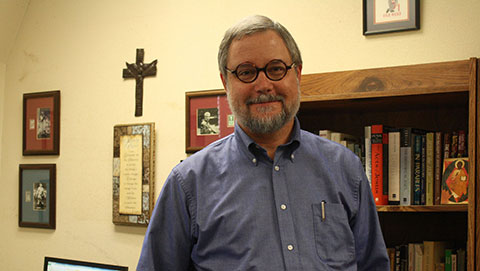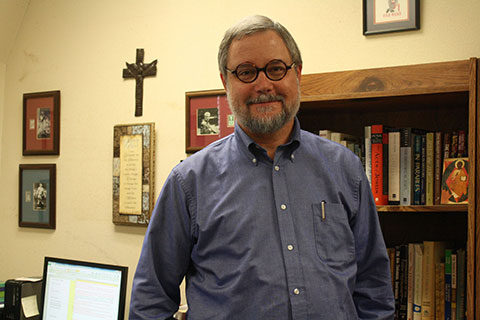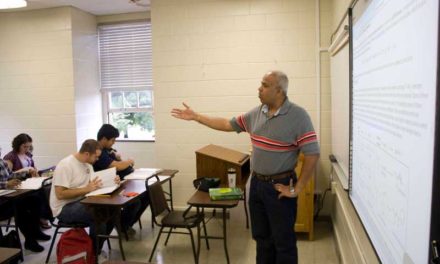By Linnea Cavallo and Omega Dabale (Whetstone staff writers)
Responding to severe budget cuts and potential administrative reviews of their departments, Wesley faculty fought and got the administration to compromise about how it was going to tackle a budget deficit that new chief financial officer Ron Reck presented to the College shortly after the beginning of the fall semester.
In September, Reck and President William Johnston declared to both faculty and staff that the College was $2 million in debt.
“You should know that last year a zero balance budget was predicted,†said political science professor Dr. Tony Armstrong.
To fix the problem, Johnston and Reck presented to the Board of Trustees a plan that included program reviews and budget cuts.
At the September meeting, faculty and staff were told that the debt was primarily due to a 2 percent rise in the student discount rate, which reduced what students pay for tuition.
“I think it was more of a made-up shortfall than what’s really there,†said professor of religion Dr. Jeffrey Mask.
After the meeting, several members of the faculty joined to find a way to deal with the problem, Mask said.
Responding to the administration, “A faculty resolution was passed on Oct. 9,†Armstrong said. “The resolution was done through a secret ballot and it almost passed unanimously.â€
The resolution addressed several issues.
“The resolution that we put together stated that what the program reviews were doing was not putting the students first,†Armstrong said. “We wanted the college to stick to its ideals of shared governance.â€
Shared governance, which is part of the Faculty Handbook, demands that the faculty have a say in how the College is run.
President Johnston approved this resolution and eliminated department reviews.
“We view the president’s reply as positive, a new opportunity in growth and improvement at the college,†Armstrong said.
The resolution stated that “faculty are in the best position to understand how decisions affect student morale, engagement and learning and, thus, enrollment and retention. This is the reason for the faculty’s primary role in shared governance.â€
Although the faculty was successful in eliminating program reviews, some said that something needs to happen to help balance the budget.
“I feel changing something drastically is wrong, though,†said mathematics professor Dr. Frank Fiedler. “If you have tuition as a driver, you need to have an average that students are able to pay.â€
In response to another faculty resolution requesting a moratorium on any academic program reductions or cuts, the president promised to allow two faculty members from the faculty’s Academic Affairs Committee to become part of the Cabinet Budget Committee.
“That means that two faculty members, to be elected by the Faculty, will meet with the president and his cabinet to discuss budget priorities and put a budget together, Mask said.
The Cabinet Budget Committee includes Provost Patricia Dwyer, Athletic Director Mike Drass, Chief Financial Officer Ron Reck, Dean of Students Wanda Anderson, Admissions Director Howard Ballentine and Chris Wood, vice president of Institutional Advancement.
Nursing professor Julie Fisher and Media Arts professor and Faculty Convener Victor Greto were elected by the faculty Nov. 18 to be part of the committee.
Even with all of the disagreements that the administration and faculty have had, Mask believes a resolution to the budget crisis can be found.
“I’m hopeful we can get on the same level and come to an agreement of what needs to be done,†he said.
Some faculty reiterated that the focus should be on the students and their needs.
“The reason people choose Wesley is the relationship they have with a coach or a professor,†said professor of biology Dr. Kathleen Curran. “We still have that, it won’t change.â€






